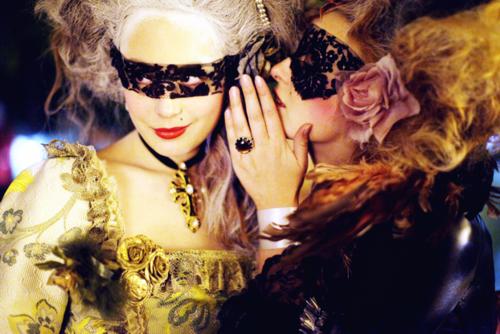Aphra Behn, the writer of the play was the first woman writer of the late seventeenth century. She wrote plays from the female perspective about the historical aspects of the Restoration society. In her play The Rover, Behn portrays the elements of feminism through the characters of Florinda, Hellena and Angellica. Each of these characters represents their own way of feminine struggles to make an identity during Restoration.
Florinda’s character shows us the struggles of women to have their own agency in marriage. She is a noble lady who is being forced to marry without her consent. She is in love with an Englishman named Belvile, however, is forced to marry the suitor selected by her brother. The patriarchal society often overtook the ability of women to make choices regarding their own marriage, and decisions were forcefully imposed on them by the male members of the family. Florinda refuses to marry Don Vincento, the suitor her brother had chosen for her but fails to convince her brother. Behn portrays this harsh custom that can be seen since ages in the society. She runs away to the carnival to find an escape from her life along with her sisters.
With Hellena, the writer represents a rebellious and witty female, who dares to defy the restrictions imposed over her. Although she is forced to become a nun, she runs to the carnival to experience some real love. The sisters disguise themselves in unrecognizable attires to hide their identities. Hellena is referred to being ‘unladylike’, which is indicated to her ability to openly rebel against the impositions placed upon her freedom. Even though she is destined to join the nunnery and live her life as nun, her heart doesn’t want that. In the carnival, she meets Willmore, a rover who tells her that she is too young to waste her life being a nun. Hellena falls in love with the witty Willmore and refuses to return back to home. Hellena is one of the central characters that provides comedy in the play along with Willmore.

Despite their increasing agency in choosing a marriage partner, women in the Restoration were nonetheless valued as commodities. Angellica Bianca is anothr female character of The Rover. She is a courtesan, a desirable eye-candy to the men. In her profession, it is her who dominates over choosing a partner for her. When the Englishmen try to express their desire to have her companionship, she brushes them off saying that “Nothing but gold shall charm my heart.” The amount that men are willing to pay represents her value and elevates her idea of self worth. Through the character of Angellica, Behn represents the ability of women to capture a man through beauty and lust. The men who demonstrate male chauvinism within the four walls of their houses readily throw themselves upon her. Angellica, who places high charges upon herself agrees to provide her companionship to Willmore for free. The lady who is desired by all the men falls in love with a wanderer. She gives him the power to spend the night with her at the cost of his love alone. Just like Florinda and Hellena, Angellica too broke the rules of the society just for the sake of the love.
Through each of these women, the writers tried to show how the string of every woman’s life was always controlled by the men of the Restoration society. Florinda, the noble lady began with no sense of agency, but the power shift gave her more agency to choose her partner. Hellena , who had almost the same level of agency as her sister, being forced into the life of a nun, found the shift of power through the courtship of a man. However, Angellica who had the agency of power and control over men lost it, by falling in love and defying her values for the sake of love. It left her vulnerable and decreased her level of agency which lowered her social value and self worth. Each of these characters display a struggle to revive their identity and self worth. Behn covers the topics of marriage, self-identity and social representation in relation to the Restoration age. Through these elements, ‘The Rover’ earns itself a critical part in the history of Restoration theater.